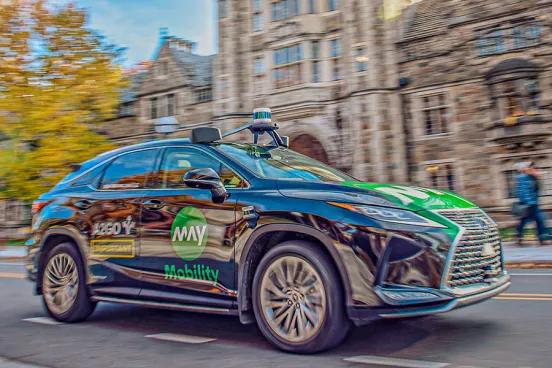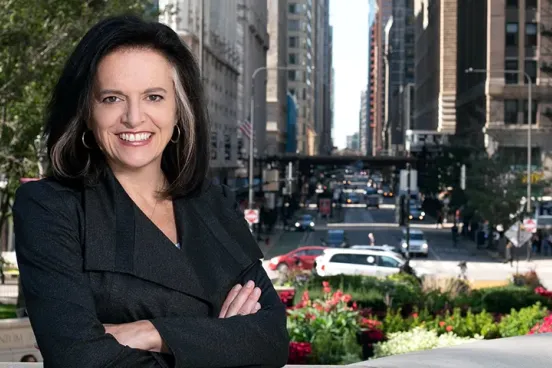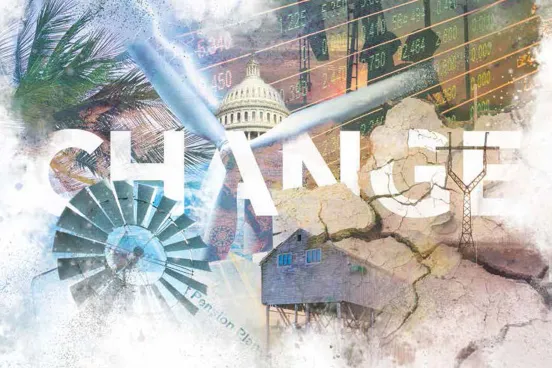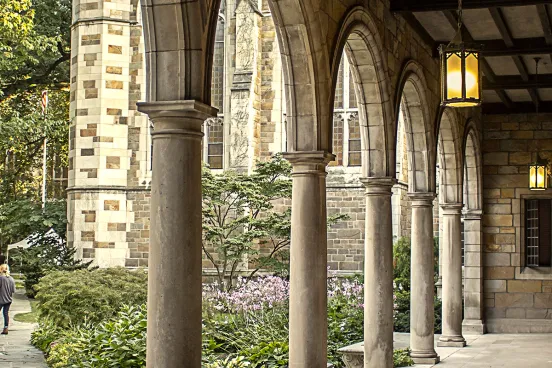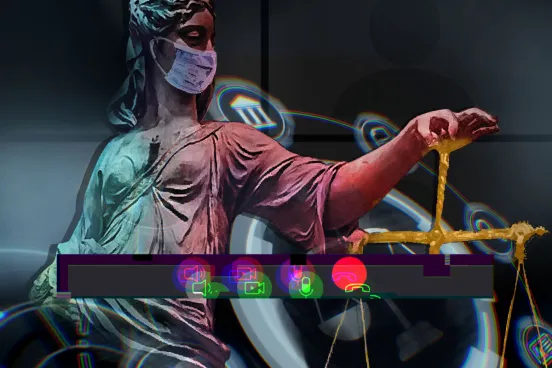As part of the ongoing Environmental Law and Policy Program Lecture Series, Michigan Law welcomed the first ever White House national climate advisor, Gina McCarthy, to speak about current federal efforts to address climate change.
McCarthy joined the event virtually from her office at the White House, while David Uhlmann, the Jeffrey F. Liss Professor from Practice and the director of the Environmental Law and Policy Program, moderated and fielded questions from students who attended the event remotely as well as in person.
“Between climate, which we’re going to talk about today, and environmental justice, which we’re going to talk about in [the next ELPP event], there aren’t any bigger issues facing our nation and the world from an environmental standpoint,” Uhlmann said in his opening remarks. “Both are significant priorities for President Biden, both are getting lots of attention in Washington, and both seem quite worthy of our attention in the Environmental Law and Policy Program.”
McCarthy has extensive leadership experience working on environmental initiatives. She served as administrator of the Environmental Protection Agency under President Obama and as the CEO of the National Resources Defense Council before assuming her current role.
As the inaugural national climate advisor, McCarthy oversees the federal government’s climate agenda and helps steer what she describes as a “whole of government” approach to addressing climate change.
“When we talk about whole of government, it means we have a task force that has every cabinet member on it. We meet all the time. Climate is not a secondary consideration…Every one of the agencies is actively involved in looking at the challenge of climate change,” she said.
“One out of three Americans [have felt the effects of climate change] in the last couple of months, between the wildfires and hurricanes and flooding, and the storms and droughts and heatwaves. We’re in a new era when we can see it and taste it and feel it for ourselves.”
In all her roles, McCarthy has worked to frame climate change as something that is inextricably linked to the economy and the people who make up the workforce, noting that investments in climate change mitigation are an opportunity to create well-paying jobs that can help reduce poverty and boost the economy, particularly as it rebounds from the effects of the pandemic.
McCarthy also stressed that “we have to move now” in order to achieve the U.S. goal to create a carbon-free power sector by 2035 and a net zero emissions economy by 2050. Despite the challenges posed by climate change, she expressed her excitement and optimism about the road ahead.
“We have to look at this as rebuilding our economy, as moving forward to capture the 21st century and to grow jobs that people need. We must make people understand that this is about their lives, and their families, and there are steps that they can take that are going to be beneficial not just for climate but for people,” she said.
“We cannot accept, or expect people to accept, answers to this question of climate change that are about disinvesting or about sacrifice. This is a time to make people feel positive about momentum and how we build on it. Because frankly, I feel pretty positive about it.”


